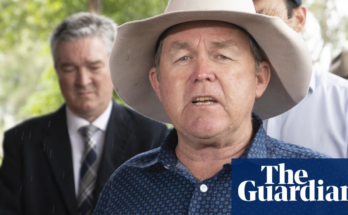Overworked and underpaid: no wonder today’s teachers – men and women – are feeling disillusioned
Sun 15 May 2022 01.00 EDT
It seems ironic that, in a system where the majority of multi-academy trust CEOs are very well-paid males, it should be so difficult to recruit and retain men in classroom roles (“No place for young men? Male teachers quit as pay levels drop”, News). It’s not just the take-home pay that is the issue, eroded as it has been by pay “pauses” (aka freezes). The ever-widening pay gap is exacerbated by performance-related pay, which regularly delivers bonuses to the top, but much less reliably to the lower echelons. School budgets often can’t run to rewarding hard work and high performance for teachers.
Yet workload remains excessive and rising. Weekends and holidays are snaffled by preparation, extra teaching (revision) and accountability. The ratio of pay to hours worked is more unbalanced than ever. Promotion is less financially rewarding now that the 2022 pay arrangements target higher rises at new teachers and hardly enhance remuneration for more experienced and senior staff.
Teachers in it for the long haul should also keep an eye on their pensions. The independent sector is removing itself from the teachers’ pension scheme; how long before academy chains follow suit if the government subsidy is withdrawn?
Teaching has become an under-rewarded, unrewarding stressful profession – and it isn’t just men who are disillusioned.
Yvonne Williams
Ryde, Isle of Wight
Teacher low pay, for women and men, is a problem created by those Conservatives and academy managers who sneer at classroom teaching as temporary work. Because Conservatives have an eye on the next election, the use of exam results and league table positions in electioneering helps academies turn classroom teaching into arduous, short-term, exam-factory work. This is seriously at variance with the long-term purpose of teaching. The tension it creates is reported daily as the crisis in student mental health and the shortage of teachers.
A coherent solution includes securing well-paid, psychologically literate classroom teachers whose professional knowledge rivals those in countries the UK trails behind in international comparisons.
Dr Miles Secker
Heckington, Lincolnshire
Here be dragons
If Philip Hoare (“Why monsters tap into our fear of the unknown”, Focus) wants to continue to fear and wonder at what might lie beneath the surface of seas and waterways, he might like to take a plunge into the Trent and Mersey canal, as I did a couple of years ago. I saw stuff in there that still gives me nightmares.
Ian Grieve
Gordon Bennett, Llangollen canal
‘Cancer’ of Murdoch press
Along with over half a million other Australians, I signed Kevin Rudd’s petition calling for a royal commission into NewsCorp: what he called “a cancer on democracy”. It’s even more necessary now. As a leftwing socialist, I disagree with Nick Cohen on many things, but full marks to him for calling for sanctions on the Murdoch press for its toadying to Putin.
Prof John Tully
Dover, Tasmania, Australia
Northern Ireland’s real victor
The real seismic event in Northern Ireland is not Sinn Féin’s “victory” (“Seismic Sinn Féin victory fuels debate on future of the union”, News). Its share of the vote barely changed and it gained no seats. Rather, it is the surge in support for the non-sectarian Alliance party, which had the largest increase in votes and more than doubled its number of seats. Thus, the debate that should be fuelled is how to change the Good Friday agreement to allow non-sectarian parties a role in how Northern Ireland is run.
Jon Burden
London W14
The appliance of science
The latest World Health Organization report has led to a debate about which countries handled the pandemic best (“Sweden? Japan? UK? Debates over who had a ‘good’ Covid won’t end”, Comment). The only real winner here is scientific progress. We’ve seen unprecedented research into vaccines, drug development, wearables, apps, microscopes and more. It doesn’t matter who had a “good” Covid. It’s how we use these scientific advancements that counts.
Charlie Rapple
Oxford
Corbyn a catastrophe?
No, Andrew Rawnsley, no: Jeremy Corbyn’s years were not an “electoral catastrophe” for the Labour party (“Boris Johnson’s Tories exhibit the morbid symptoms of a fin-de-siècle regime”, Comment). In 2019, his Labour party’s share of the vote was greater than Miliband’s in 2015 and Brown’s in 2010. The party’s loss was rather due to the cynical stitch-up between Johnson and Farage, with the result that the latter’s Brexit party took much of the working-class vote in the north of England. Take that out of the equation, and watch Johnson’s 80-seat majority vanish like snow in summer.
Wal Callaby
Whatfield, Ipswich
Our voting system is broken
Your excellent leading article analysing the local election results (“A poll with one clear truth: it was grim for the Tories”) surely missed one even clearer truth: given an increasingly fractured electorate, neither of the two major parties today can form a coherent coalition embracing different priorities without fracturing themselves in the process.
When a “majority” party in Westminster is disdained by an increasing minority of voters nationally, the first-past-the-post system is no longer fit for purpose. This is not democracy. Proportional representation, as used widely in many other countries and successfully in parts of the UK, would both address and resolve the problem. Its time has surely come.
Philip Bushill-Matthews
Leamington Spa, Warwickshire
Living with partition
Living with partition, imposed by an imperial power as the price for peace, can indeed be compatible with preserving national independence (“Surrendering land is not the same as defeat – if a stronger Ukraine emerges from the ruins”, Comment). There is an example of that far closer to home than Georgia or middle Europe. The human cost can be heavy, as Ireland experienced over the last century: civil war, distorted politics and the agonising decades of the Troubles. But the attempt to reverse Ireland’s independence by military force ceased.
It looks as though Ukraine may have to accept partition as the price for peace, and pay the human cost that this will bring – although first it will need to force Russia to accept that way out. But living with partition need not mean that Ukraine would ever have to recognise it as right or as permanent, any more than Ireland has.
Kevin McGrath
Harlow, Essex
Some like it yacht
Catherine Bennett’s piece about rich New Yorkers at play and their apparent indifference to suffering elsewhere (“What do you get when a lack of taste meets a shedload of cash? Anna Wintour’s ball”, Comment) put me in mind of one of my favourite scenes in Billy Wilder’s Some Like It Hot, where Tony Curtis masquerades as a millionaire in order to impress Marilyn Monroe:
Monroe: “You own a yacht? Which one is it? The big one?”
Curtis: “Certainly not. With all the unrest in the world, I don’t think anybody should have a yacht that sleeps more than twelve.”
John Tavner
Dedham, Colchester, Essex
{{topLeft}}
{{bottomLeft}}
{{topRight}}
{{bottomRight}}
{{/ticker}}
{{heading}}
{{#paragraphs}}
{{.}}
{{/paragraphs}}{{highlightedText}}
{{#choiceCards}}{{/choiceCards}}



